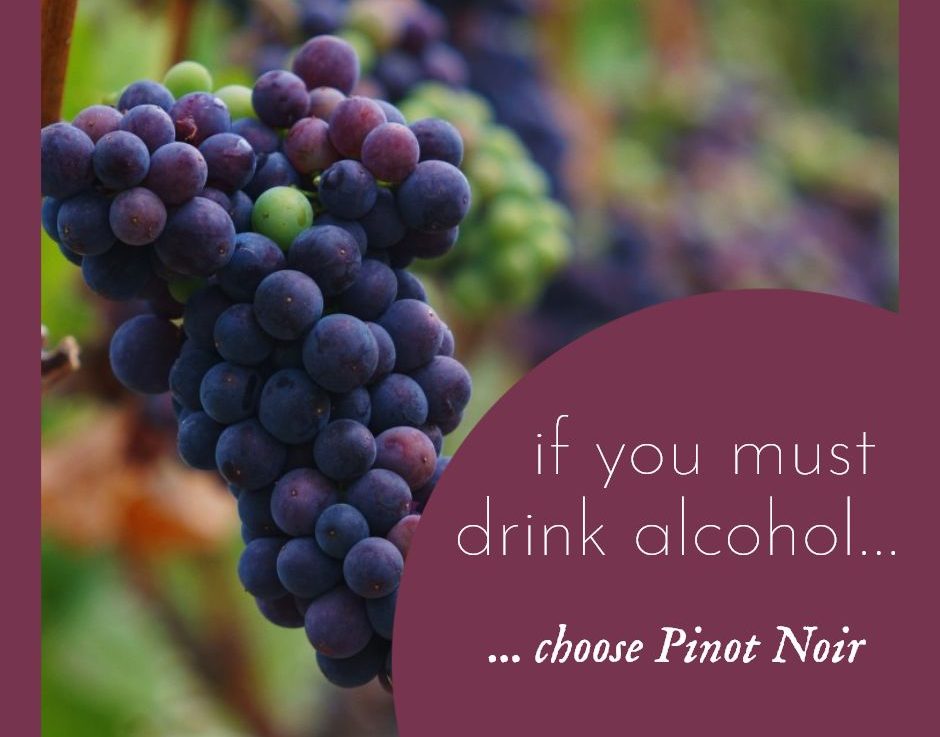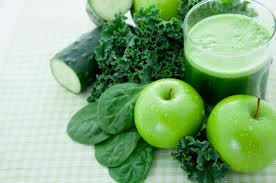If you must drink alcohol…

We ‘should’ avoid, but we don’t always do the right thing – even to the detriment of our healing. (I smoke, I drink coffee, AND I care about my health). I consider myself a non-drinker because I only have 2 or 3 a year but I know many enjoy alcohol regularly, so I wanted to research to find the best option to suggest.
Re-iterated EVERYWHERE: No one should begin drinking alcohol or drink more often on the basis of potential health benefits. The possible benefits don’t outweigh the risks and avoiding alcohol is the best course.
While many people can and do safely consume alcohol, avoiding alcoholic beverages altogether eliminates the potential of a variety of short- and long-term effects drinking can have on your health and well being. In moderation, some alcohol may have some potential health benefits, but all of these can be derived from healthier food sources. The risks of drinking outweigh the perceived benefits.
Heavy consumption of alcohol increases the risk of developing cancers such as breast cancer and cancers of the throat and mouth. The risk is higher in persons who smoke and drink heavily. Alcohol can harm unborn babies, cause accidents, lead to alcoholism, ruin relationships, damage the liver, cause brain damage and mental issues, diabetes, high blood pressure, stroke, and heart disease, and females also tend to be more vulnerable to alcohol-related cardiovascular disease.
That being said, many people are more than willing to accept some health risks associated with drinking because they like to drink, so if you must drink alcohol, choose red wine – but not ‘any’ red wine.
First Point: Most of the studies contradict each other
One day, a study says wine is good. The next it’s bad. We’re interpreting the studies with bias of what we want it to say, reading between the lines, making our own conclusions, and we’re interpreting it as bad or good without necessarily looking at the studies deeply enough to understand its effects on humans.
People who say a Macca’s burger is good for you because it contains all the food groups for instance. They are joking of course, but there are some who use that logical reasoning to justify their poor health choices.
Since most of the studies are done with mice and petri dishes, people can jump to many different conclusions that might be way off base. (01) To get the same dose used in some of the mice studies, you would have to drink more than 60 litres of red wine a day, and according to a study on Resveratrol (in 2016), if a person intends to ingest 1 g resveratrol each day, it would require consuming 505-2,762 litres! They conclude that it is not possible to absorb the recommended therapeutic doses of resveratrol by drinking wine or through dietary sources. (02)
That being said, here’s my ‘likely just-as-biased’ interpretation and notes when looking for the healthiest option or the one that has the least consequences.
To get my conclusion out of the way, Pinot Noir looks to be the best choice with the most benefits vs risk ratio (or rather, the one to choose ‘if you really must’ (and only in moderation):
If you must drink alcohol, choose Pinot Noir
It will not heal you of health problems, but if you’re going to pour a glass of something, Pinot Noir comes with the fewest consequences — as long as you’re drinking in moderation.
Pinot noir is a medium-bodied red wine made from black grapes. Pinot noir possesses the richest resveratrol content by far. Of the pinot varieties, those grown in cooler climates had higher resveratrol levels than those grown in warmer clients.
- Pinot noir has the highest concentration of the highly touted antioxidant resveratrol. Pinot grapes have a thin skin, so Pinot Noir has low tannins (people get wine-headaches from tannins) and high levels of resveratrol . Four ounces (118ml or 1/2 cup) of pinot noir delivers roughly 640 micrograms of resveratrol, a number that’s unmatched by most other red wines. (Malbec may be another wine to look into – known for its high resveratrol content).
- Pinot Noir has a lower calorie count and overall sugar per glass than other reds: Pinot noir grapes begin their fermentation with some of the lowest amounts of natural sugar. This results in a lower calorie count per glass and lower overall sugar levels at the end of its fermenting process.
- “Dry” wine contains less sugar: Different types of red wine have different amounts of sugar. Go for the dry variety. (03)
- Red wine prepared in the traditional way will have the highest resveratrol concentration. For full extraction of various plant pigments and antioxidants from the grape skins and seeds, the wine needs to be in contact with them for a long time, till fermentation is complete.
- New wine is better than Aged wine: Whilst old wine “tastes better as it ages” and has always been assumed to improve in quality, the latest research (in 2020) shows that new wine is actually better for you. This new research revealed that several key antioxidants in red wine disappear as wine ages. During the study period, trans-resveratrol concentration decreased by an average of 76% over a 16-month period. This is a huge decrease in the concentration of this particularly important health-benefiting compound. They found it decreased in some of the wines by as much as 96% in that same period. (04)
Resveratrol
Resveratrol, an ingredient in red wine, may have a number of health benefits, including heart protection, cancer prevention and life extension. Resveratrol is a polyphenol, which is a type of antioxidant, that was discovered in the 1940s and has since been extensively studied. Although more research is needed.
While all wines contain polyphenol antioxidants — or natural compounds that help protect our cells from damage — red wine has the most. Most of the health benefits offered by red wine are linked to an antioxidant known as resveratrol, which is found in the skin of grapes as well as other berries.
Resveratrol has been linked to lower risks of cancer, stroke, and heart disease, among other benefits.
Polyphenols are inflammation-reducing compounds, which you can also find in spices like star anise and cloves. Polyphenols are micronutrients that we get through certain plant-based foods. They’re packed with antioxidants and potential health benefits. It’s thought that polyphenols can improve or help treat digestion issues, weight management difficulties, diabetes neurodegenerative disease, and cardiovascular diseases. (05) (06) (07) (08) (09)
But hard clinical end points are still lacking when a meta-analysis is performed on these same studies. (10)
The amount of polyphenols in red wine is not high enough to explain its health benefits for humans. If we are looking for benefits vs risk, adding these foods to your diet would be a healthier choice for increasing polyphenols, (but it still wouldn’t reach the therapeutic level observed in the studies):
- berries (blueberries, blackberries, strawberries, or raspberries)
- fruit (black currants, plums, cherries, or apples)
- vegetables (artichokes, chicory, red onions, or spinach)
Red wines have a resveratrol content of 0.03-1.07 mg per 5-oz glass. In comparison, red grape juice contains 0.017-1.30 mg per 5-oz glass. Red grape juice has a higher resveratrol concentration (although their results in terms of health aren’t much different). (11) But drinking grape juice instead of red wine will avoid the risks of over consumption. (12)
Alcohol and Cancer
- Alcohol intake increases the risk of cancer development. Approximately 3.6% human cancers worldwide derive from chronic alcohol drinking, including oral, liver, breast and other organs. (13)
- One woman in every nine will get breast cancer at some time in her life. Epidemiological studies have indicated that alcohol consumption has most consistently been associated with breast cancer risk. (14)
- Evidence is consistent that alcohol intake, even intake of less than 10-15 grams per day, is associated with increased risk of Breast Cancer. (15)
- Although alcohol has been linked to increased risk of breast cancer, a different study published in 2012 disputed the notion in the case of red wine. In the study, researchers found that women who drank red wine in moderation had higher levels of aromatase inhibitors, which are used to treat breast cancer, due to the chemicals in the skin of the grapes used for making red wine. But also noted that more research needs to be done. (16)
TrxR1
TrxR1 is implied to have several different roles in relation to cancer. Its physiologic functions may protect normal cells from carcinogenesis, but may also promote cancer progression if carcinogenesis nonetheless occurs. (17)
Red wine, rich in polyphenols and flavonoids, was shown to efficiently inhibit TrxR activity and to be highly toxic to various cancer cell lines.
Wine is a complex mixture of many different substances, for instance polyphenols, such as resveratrol and tannins, and flavonoids, such as quercetin, myricetin and anthocyanins. Two flavonoids which can be found in wine, quercetin and myricetin, are known to irreversibly inhibit TrxR1.
Red wine triggers cell death and thioredoxin reductase inhibition: effects beyond resveratrol and SIRT1.
Although red wine as such is unlikely to reach TrxR1 in cancer cells, this study showed that: i) red wine contains substances other than resveratrol that have strong effects on cells, and ii) some of those compounds are efficient inhibitors of TrxR1
TrxR1 appears to have an important role in preventing tumor development, but it seems to be a double-edged sword as it also has a role in promoting cancer under certain conditions. (18)
I could spend months doing research on this, the studies are endless. But I’m spent. lol.
Conclusion?
For health – just eat grapes straight off the vine lol (or organic red grape juice that you juice yourself). But if you must drink alcohol:
- drink Pinot Noir
- organically grown in a cold climate
- processed in the traditional way
- newer is better
- up to 1 glass per day (female), 2 glasses (male)
Where to source:
I found when trying to find a wine that matched those features, it was easier to go to sites like Dan Murphy’s and other online bottle shops and wine cellars (that have full descriptions listed for each of the individual wines), and do a search for “organic” Pinot Noir and then read the descriptions of each wine to find out more about how it was made.

Site Notifications/Chat:
- Telegram Post Updates @JourneyToABetterLife (channel)
- Telegram Chatroom @JourneyBetterLifeCHAT (say hi / share info)
- Gettr Post Updates @chesaus (like fakebook)
Videos:
References




